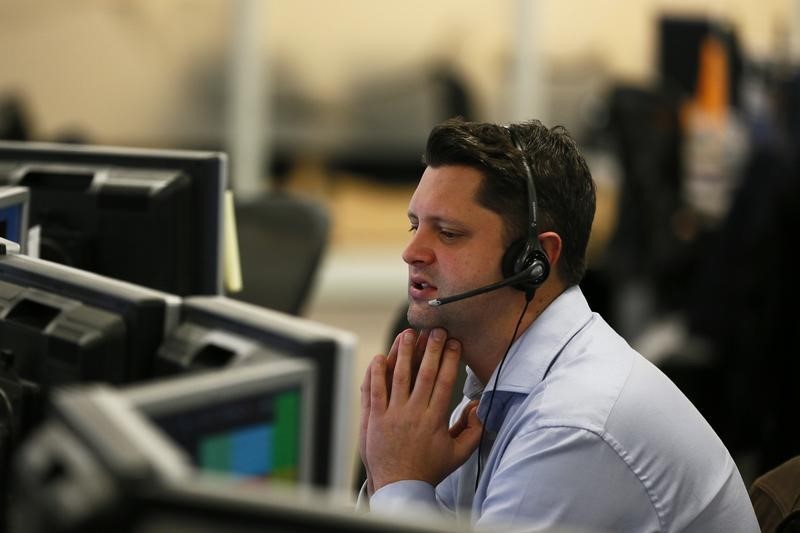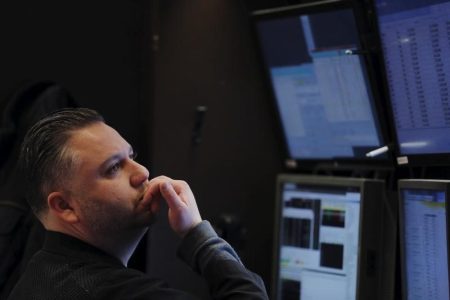By Wayne Cole
SYDNEY (Reuters) -Asian stocks made a cautious start on Monday in a week that is almost certain to see the start of an easing cycle in the United States with the only question mark being the size of the cut, with markets split on the chance of an outsized move.
Central banks in Japan and the UK also meet this week, with both expected to stand pat for now, while a packed data schedule includes U.S. retail sales and industrial production.
Geopolitics loomed large as ever with Republican presidential candidate Donald Trump the subject of a second assassination attempt on Sunday according to the FBI.
Holidays in China, Japan, South Korea and Indonesia made for thin conditions and early moves were modest. MSCI’s broadest index of Asia-Pacific shares outside Japan was nearly flat, after bouncing 0.8% last week.
was shut but futures traded at 36,315 compared to a cash close of 36,581 as recent yen gains pressured exporters. were little changed, while Nasdaq futures dipped 0.1%. [.N]
EUROSTOXX 50 futures and were a fraction firmer.
Economic data from China over the weekend disappointed as industrial output growth slowed to a five-month low in August, while retail sales and new home prices weakened further.
“The data bolsters the case for additional economic stimulus by year-end if China wants to achieve its target of around 5% growth in 2024,” said Vivek Dhar, a mining & energy analyst at CBA.
“We think policymakers will look to boost central government spending on infrastructure projects if both China’s property and infrastructure sectors sink again in September.”
As for the Federal Reserve, futures rallied early to push the chance of a half-point cut to 59%, against 30% as week ago. The odds have narrowed sharply after media reports revived the prospect of a more aggressive easing.
“We agree it is likely to be a close call, but we also believe the Fed will make the ‘right’ move and go 50bp,” said JPMorgan economist Michael Feroli.
“The case for a 50bp cut seems clear to us: various iterations of a Taylor Rule imply policy is currently a full percentage point or more too restrictive,” he added.
If the Fed does go by half a point, Feroli expects policy makers to also project 100 basis points of cuts this year and 150 basis points for 2025.
The market has 114 basis points of easing priced in by Christmas and another 142 basis points for next year.
YEN ON A ROLL
Analysts at ANZ noted that in the last three decades there have been three easing cycles that started off with a cut of more than 25bp, but in each there were concerns about a market rout leading to recession, which is not the case now.
Just the chance of an aggressive move saw bonds rally broadly, with two-year Treasury yields down at 3.593% having scored the lowest close since September 2022. [US/]
The Bank of England is generally expected to leave rates on hold at 5.00% when it meets on Thursday, though markets have priced in a 31% chance of another cut.
The Bank of Japan meets on Friday and is widely expected to hold steady, though it may lay the groundwork for a further tightening in October.
South Africa’s central bank is also tipped to ease policy this week, while Norway is seen holding steady.
The drop in Treasury yields has boosted the yen against the dollar, which stood at 140.53 yen having slipped 0.9% last week to a near nine-month trough. [USD/]
The euro was steady at $1.1090, with the prospect of more rate cuts from the European Central Bank keeping a lid on the currency at $1.1200.
The Canadian dollar held at 1.3580 per U.S. dollar after Bank of Canada Governor Tiff Macklem opened the door to faster rate cuts in an interview with the Financial Times.
Lower bond yields underpinned gold, which stood at $2,582 an ounce and near an all-time peak of $2,585.99. [GOL/]
Oil prices edged up as nearly a fifth of crude oil production in the Gulf of Mexico remained offline. [O/R]
rose 19 cents to $71.78 a barrel, while firmed 28 cents to $68.93 per barrel.
Read the full article here











